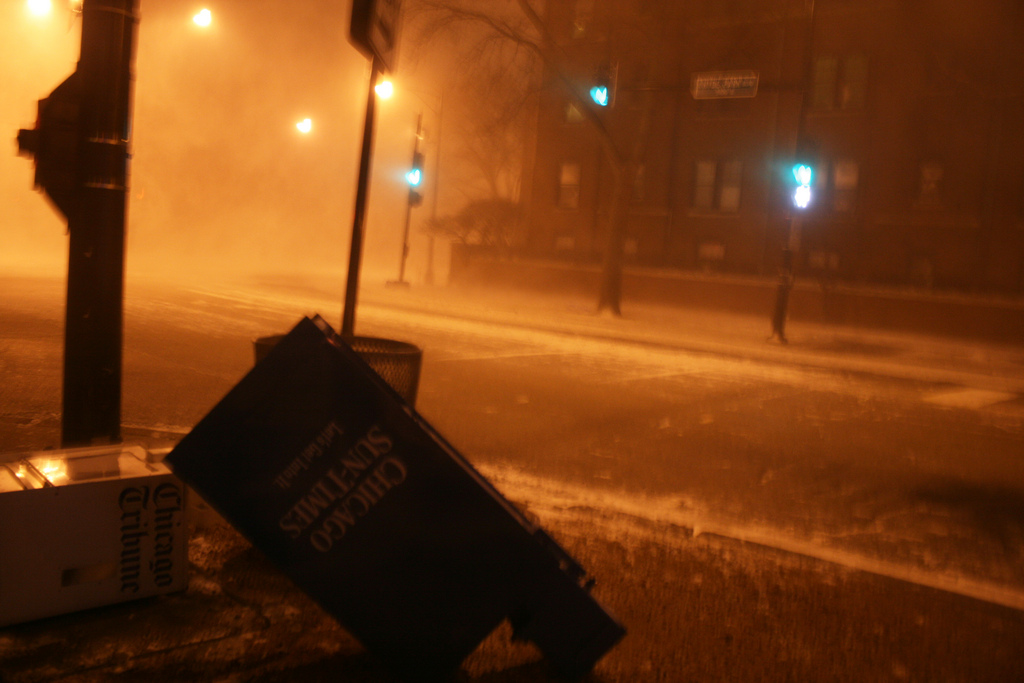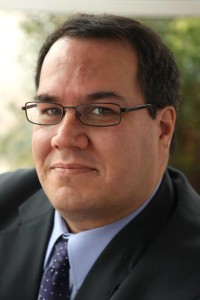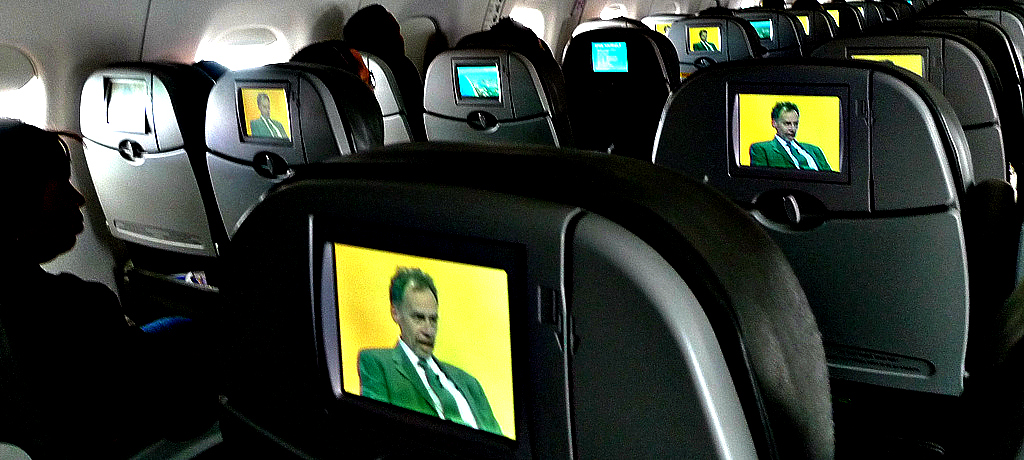Last week, a new report from The Knight Foundation said a lack of local news and information was the biggest cause of declining turnout among millennial voters.
Meanwhile, these three things happened in Chicago media:
* The Chicago Tribune laid off ten people from its newsroom
* The Sun-Times cut its Homicide Watch editor
* WBEZ canceled The Afternoon Shift, cutting two hours – or half – of its local programming
I’ve often heard the phrase “cutting into bone” when describing particularly painful layoffs and it’s hard not to see the above that way. Especially when you consider the Knight Foundation’s findings.
(Full disclosure: One of the people Tribune cut is someone I’m friendly with, I’ve had an op-ed published on Homicide Watch and I’ve been on Afternoon Shift a bunch of times – including its last show – and became friends with its host, Niala Boodhoo, as a result. I’m not exactly a disinterested party here but I’m trying to keep my argument separate from all that.)
In the case of Tribune, the average person probably doesn’t recognize most of those names. Copy editors, image techs and associate/planning editors aren’t exactly star columnists or even as familiar to readers as reporters with a byline. But you’ll notice them when they’re gone. They’re the folks that keep bad grammar and typos out of the copy, ensure the photos look front page-worthy and decide what gets covered when and how. If you want quality local news coverage and not just filler, they’re the people that make it happen.
Yet it’s often easy to think those cuts can be made without damaging the organization. Your average copy editor doesn’t have a big Twitter following so the outcry will be limited to those in the know on a couple media-focused blogs. Everyone who’s left will be asked to “do more with less.” The mistakes will slip by and everyone will hope no one really noticed.
But hey, at least the the three nationally syndicated columnists who published transphobic nonsense still have a spot on the op-ed page.
With the Sun-Times, you’d think a person whose entire job is to track the names and faces behind the numbers of murders in Chicago would still have a job. But no. How do you not have a spot for that guy in your Chicago newsroom in 2015? Especially with all the evidence that the CPD has previously played a shell game with the true murder count?
When you have something no one else has it puts you at an advantage but only if you realize what you have and know what to do with it. How does the editor of Homicide Watch seem less crucial to a news organization trying to create an engaged, loyal, paying audience than a strategy of Buzzfeed knockoffs with content scraped from social media and other news publishers? Publishers with deeper knowledge and pockets have tried and failed at the latter. Even something like Circa which attracted the best and the brightest, eventually learned that technology and distribution won’t matter unless a unique content strategy underpins it.
As for WBEZ, the Afternoon Shift‘s mission was to feature voices other than the usual slew of bold-faced names, pundits and academics. It was a two-hour show that devoted itself to issues like segregation, crime, jobs, arts and how all these topics interrelate. Award-winning bartenders were juxtaposed with authors, sports figures with community activists. A typical recent show looked at whether local doctors understand nutrition, Illinois’s state budget cuts, NASA’s plan to launch a flying saucer and the Blackhawks. It was unique, it was local, it was entertaining and it informed the public – the latter is a mission critical aspect of public media. It’s all the kind of thing listeners are willing to support with money.
Admittedly, I’m a novice about public media’s overall business model. Perhaps a strategy that creates more shows like Sound Opinions, Wait Wait Don’t Tell Me and This American Life – shows that can be syndicated throughout the public media universe – and fewer that only appeal to a purely local audience make more sense for WBEZ’s bottom line. And hey, those are good shows! But in just a quick perusal of their financial documents (page 4 of this doc is a good summary), it seems membership contributions, community service grants and other program-specific underwriting drives 70% of revenue. (As a comparative, Wisconsin Public Radio is 59% listener/grant/underwriting-supported.) That all seems driven by local programming, which WBEZ says it’s committed to in shifting staff from The Afternoon Shift to The Morning Shift (though the length of the show won’t change as of now and firing Niala, the show’s host, a journalist with several years experience reporting on Chicago and the Midwest, seems misguided, at best).
But again, maybe the health of the organization overall is in better shape if you’re less dependent on those three buckets so local programming isn’t a great bet for the future. How that delivers on a public media mission and less on a capitalistic one will be for them to figure out.
On the whole, it was a damn awful week for people who believed in the value of quality local news. Discussing it this way gives me no thrill. I want vibrancy in local media.
Now, back to that Knight Foundation report and a quote from the release about it:
“The report highlights that young adults care about their cities and have many concerns that local government can address, but these potential voters lack the information, habits, and social cues that would prompt them to engage and participate in local elections,” said David Mermin, partner at Lake Research Partners.
Chicago recently had a mayoral runoff election. It was historic. Never in the history of Chicago elections did something like this ever happen. The two candidates could not have been more different. Stakes, financial and otherwise, were real. Both candidates cranked up their get out the vote efforts…
Turnout averaged 40%.
I’m generally an optimist, even about the state of journalism and media. This week put me back on my heels a bit. In large part because I work in media so this is a direct concern of mine. But it’s one thing for me to be worried about the future of my friends. At this point, I’m worried about the future of democracy.
UPDATE: My friend Mike Fourcher has a response to the above. I don’t see my argument as “If only someone would provide good local news, people would care” so much as it is “Your audience says they need something and you’re choosing not to provide it.” And if you give an audience what they’re asking for they’ll probably see you as valuable and your chances of survival are better.
“Winter apocalypse” image by Quinn Dombrowski. Used through Creative Commons license.







